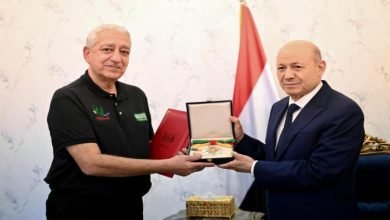Tunisia’s Kais Saied reveals draft of new constitution

SMA NEWS – TUNISIA
Tunisia’s President Kais Saied revealed on Thursday the proposed draft of a new constitution, which will be put to a referendum vote on July 25.
If approved by popular vote, the document will replace Tunisia’s historic 2014 constitution, composed over two years of negotiations in a constituent assembly and national dialogue after the 2011 revolution that ousted Zine el Abedine Ben Ali from his 23-year rule over the country.
Overhauling the 2014 constitution has been a primary focus for Mr Saied, a former adjunct constitutional law professor, who says it is a “course correction of the revolutionary path”.
After two years in the presidency, Mr Saied seized sole control of the government last July during a Covid crisis and dysfunction in parliament. He has since made moves to consolidate power in his own hands, including dissolving parliament, suspending the constitution and reappointing the high judicial council and the independent electoral commission.
The new document was drafted over the course of about three weeks in May and June by a small committee of legal scholars selected by Mr Saied.
Several key players, including the General Tunisian Labour Union, or UGTT, and the association of deans of the law schools — both members of the quartet that won the 2015 Nobel Peace Prize for their role in salvaging the 2014 constitution — rejected their appointment to the advisory committee to the new constitution, saying the dialogue was not inclusive.
“We reject any formal dialogue in which roles are determined unilaterally and from which civil and political forces are excluded,” UGTT spokesman Sami Tahri said.
Earlier this year, a “digital consultation” to inform the constitution-writing process, which surveyed Tunisians about their opinions and outlook on social, political and economic issues, attracted a paltry turnout.
“The future of Tunisia is in the hands of Tunisians and it is their intensive participation that will pave the way towards a new stage in the history of Tunisia based on the real popular will and not on fake legitimacy,” Mr Saied said in January at the consultation’s launch.
Less than 7 per cent of eligible voters participated.
Opposition to Mr Saied and his proposed constitution has grown in recent months. Many political parties are calling for a boycott of the referendum in hopes of stripping it of legitimacy.
The proposed constitution, and the referendum to ratify it, come as Tunisia’s economy continues a downward spiral, with inflation and prices of consumer goods rising, purchasing power on the decline, and state finances in ruins.








